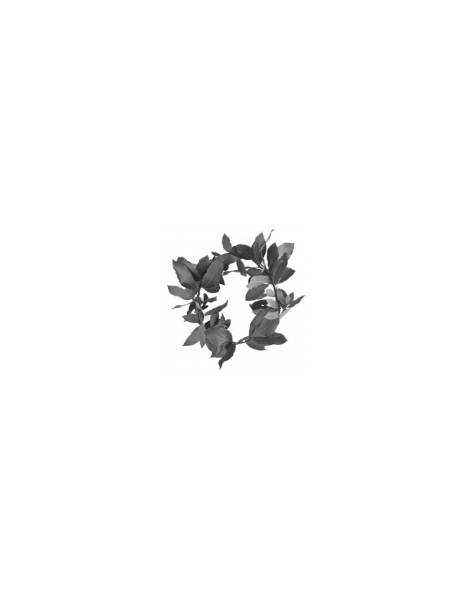Area grown: Area of Alagni, Iraklio in Crete – which is extremely limited. Alagni is the most mountainous village of the appellation area Peza.
History: Dafni is one of the oldest ancient grape varieties known; it might also be the oldest recorded grape variety still in production today. A copper vessel that dates from the bronze-ages can be found in the museum of Chania in Crete (Mitsotakis collection). The words “Dafnitos Oinos” are marked on it, this is Greek for “wine made of Dafni grapes”. The name Dafni comes from bayleaf/laurel, as the grapes taste and smell like it. Dafni was (and still is) a very rare variety, and by the 1980’s it was almost extinct. It is thanks to the efforts of the vine grower Lyrarakis that it was saved. He searched successfully for cuts and since the 80’s parts of the family vineyards are planted with Dafni. After more than a decade of careful cultivation, its survival has been guaranteed. The earlier mentioned copper vessel was found in Tsoutsouros, just a couple of kilometres from the village of Alagni, where the Lyrarkis Estate is located.
Grapes: Dafni is an ultra-productive variety, and needs very careful cultivation. Green harvest (the removal of immature grape bunches for the purpose of decreasing yields) is common and pruning must be strictly applied. The grapes are very big, and the skins are very thick, thereby concentrating the aromas. Dafni is a late ripening variety and the harvest usually takes place in October. Although the long ripening period has positive effects, it is not without risks, as rain can ruin the crop.
Nose/bouquet: Herbal aromas of bay leaves, mint, oranges, wild forest honey.


Well done, Markus! Great post! Keep them coming… ;-)
Thank you so much – really enjoy positive feedback on these somewhat “geeky” posts!
Markus, history is not geeky–it’s necessary knowledge! Don’t stop.
Thomas, thank you – that just made my day!
Markus,
If I can make your day, you need to get a life… ;)
Markus, I love your videos. They are fantastic! Plus I get to see you… Did a quick Google but nothing came up for Lyrarakis Dafni 2009 in the US market. Do you know who imports the wine in the US?
You had me when you said Laurel!
Viviane, Stellar Importing Co., Astoria, NY. For you, this is a must try!
Thank you Markus. I’m on it… Will call Stellar in the morning!
you should not forget to mention Nikos Douloufakis and his efforts to have the Liatiko in the way as it is. Superb wine from ancient time as well!
:-)
True, also amazing that the estate has been involved in winemaking for 80 years, although it has only been in official existence since the early 90ies. If I am not mistaken, the Liatiko is organic.
Thank You very much Markus! This is very informative. Now I’m curious about this wine. How it smells and tastes. I better get one of that!